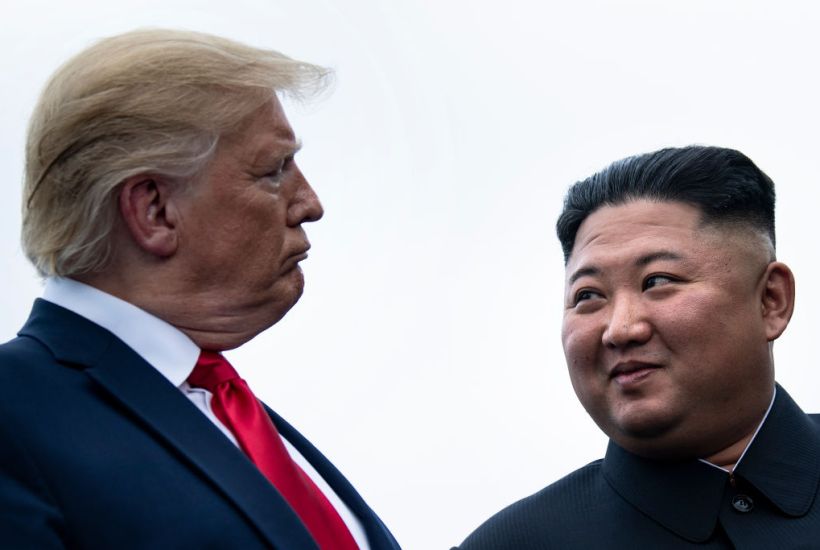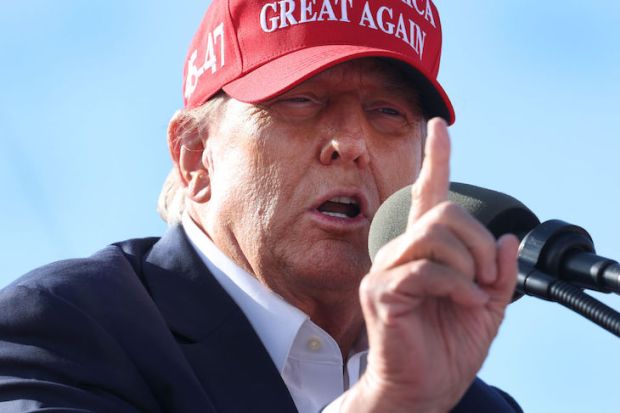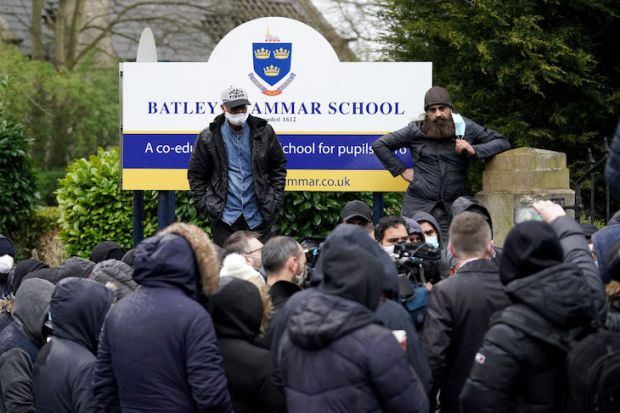Donald Trump has made plenty of enemies in his time as president, but as the US president himself has claimed, he also gained an unlikely friend: Kim Jong-un. North Korea will be watching the result of next week’s US election closely. But would Pyongyang prefer four more years of an impulsive Trump, or a new Biden administration in its place?
Both leaders have not been immune from denigrations from the top of the North Korean regime. Trump may have been decried as a ‘dotard’, but his Democratic challenger has been degraded as a ‘low-IQ snob’ and an ‘imbecile bereft of elementary quality as a human being’; a ‘rabid dog’ who ‘must be beaten to death with a stick.’
Name-calling aside, while we may not have seen the usual election-year provocations from the North, the DPRK’s display of new ballistic missile technologies – intercontinental and submarine-launched – at the parade commemorating the 75th anniversary of the Workers Party, earlier this month, made a clear point. North Korea wants to be recognised as a nuclear-armed state and concessions on nuclear weapons remain low on Pyongyang’s agenda. In the eyes of North Korea’s regime, discussions about disarmament of nuclear weapons are futile: for North Korea, the DPRK is a self-declared nuclear state, which the world should accept, whether it likes it or not.
While no deal was struck during the first four years of Trump’s tenure, a second Trump administration would give North Korea another opportunity in convincing Washington to make an unsavoury decision or else face an equally unpalatable consequence: accept disused parts of the Yongbyon nuclear facility, or return to missile testing. It’s worth remembering that North Korea’s moratorium on long-range missile testing, of April 2018, was self-imposed.
Trump’s rhetoric during his recent presidential debates have only highlighted the US president’s insatiable appetite for a deal with North Korea, if only so he can brag about it. For North Korea, Trump’s reckless decision-making is an asset, not least given the president’s disdain for multilateralism, particularly the financial burden of US alliances. The US president has frequently complained about the cost of the US-South Korean alliance and its defensive military exercises. This has been music to North Korean ears.
Biden, on the other hand, signals a return to more conventional US-North Korea policy. Yet even under this Democratic president, it seems unlikely that we would see a return to the Obama strategy of ‘strategic patience’, where the US waited for North Korea to make the first move before any negotiations took place. North Korea decried such a policy, and responded by accelerating its nuclear ambitions. Under Biden, the US commitment to its South Korean ally would likely be strengthened, and meetings with Kim Jong-un – who Biden recently called a ‘thug’ – would have to be hard-earned.
For China, which has sought to strengthen its ties with its North Korean friend in recent weeks, Biden has said that Beijing would ‘pay the price’ for not playing by the rules. This could present a possible opportunity for Sino-North Korean relations to be revived. If a new Biden administration were to increase sanctions on the DPRK, such an act needs to be carefully considered, however, given the deteriorating state of the North Korean economy, especially in the wake of coronavirus. A return to ‘strategic patience’ would lead to a return to stalled progress on North Korea.
So it seems like North Korea would prefer a return of the ‘dotard’ compared to the ‘snob’. Yet things may not be so simple. The failure of the Trump administration to advance any constructive deal with North Korea – despite three presidential-level meetings – was not taken lightly by Kim Jong-un, even in spite of the apparent chemistry between the two leaders.
What about a possible Biden visit to Pyongyang? It nearly happened with president Clinton, with then-Secretary of State Madeleine Albright eventually visiting Pyongyang in October 2000. Yet Pyongyang 20 years on is a very different place. In two decades, North Korea has conducted six nuclear tests. It is also armed with increasingly sophisticated and numerous nuclear and missile capabilities, particularly intercontinental ballistic missiles; a new ICBM was unveiled earlier this month. At the same time, given North Korea’s perilous economic position, and with the ice already broken regarding the ability of an incumbent US president to meet with their North Korean counterpart, we should not rule out the possibility that Pyongyang may reach out for a small deal, even if Trump loses.
Will North Korea be greeted with a ‘November surprise’ in the form of the US election result? Perhaps, but one thing is for sure: for whoever will be sworn in on a cold January morning in 2021, the North Korea problem will not have disappeared.
Got something to add? Join the discussion and comment below.
Get 10 issues for just $10
Subscribe to The Spectator Australia today for the next 10 magazine issues, plus full online access, for just $10.




















Comments
Don't miss out
Join the conversation with other Spectator Australia readers. Subscribe to leave a comment.
SUBSCRIBEAlready a subscriber? Log in